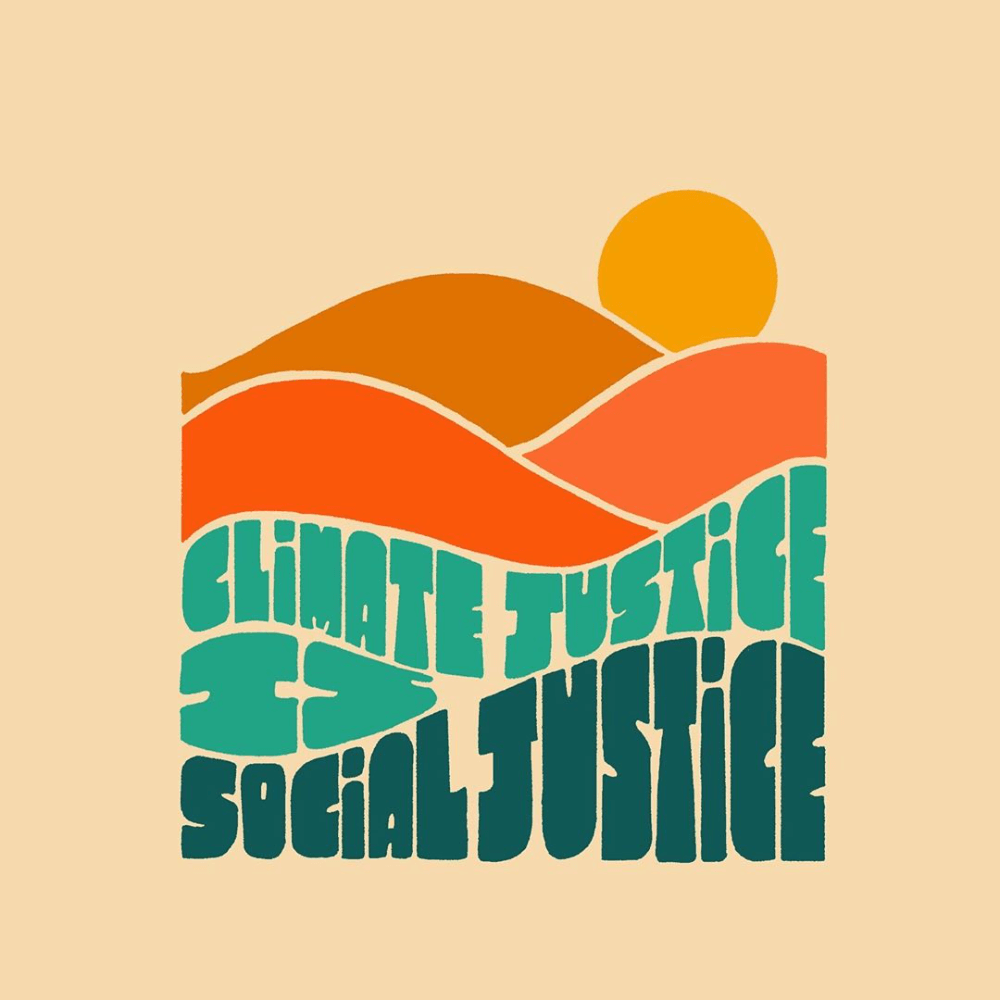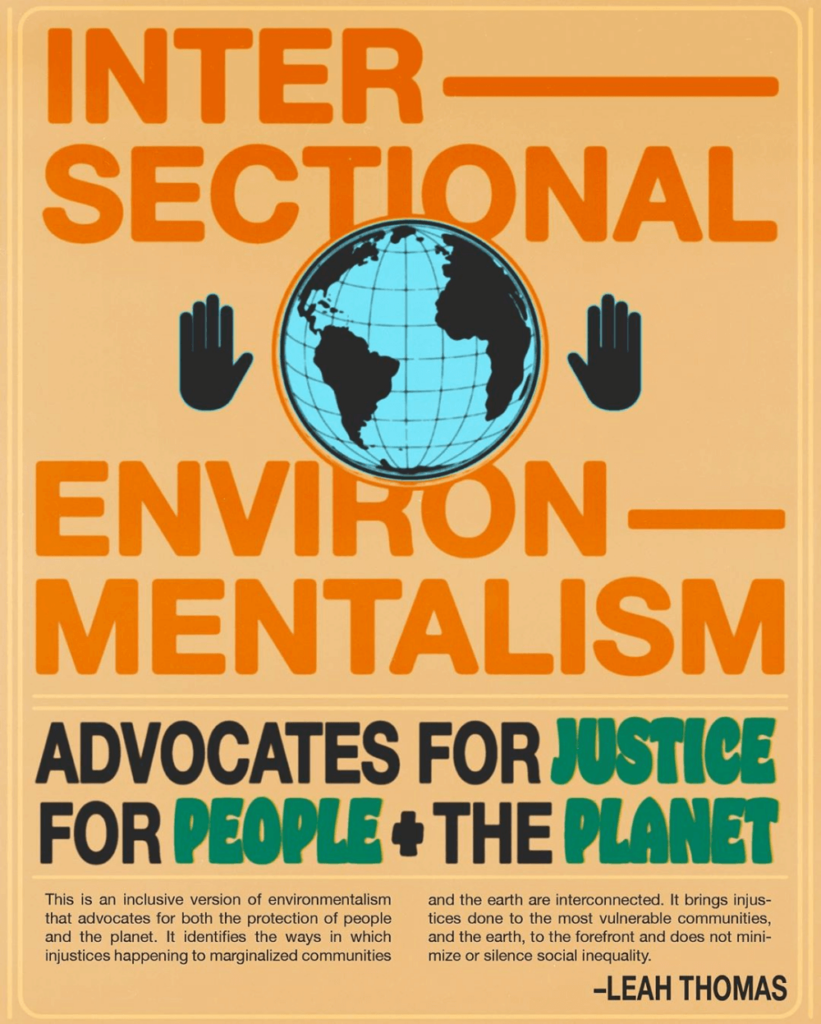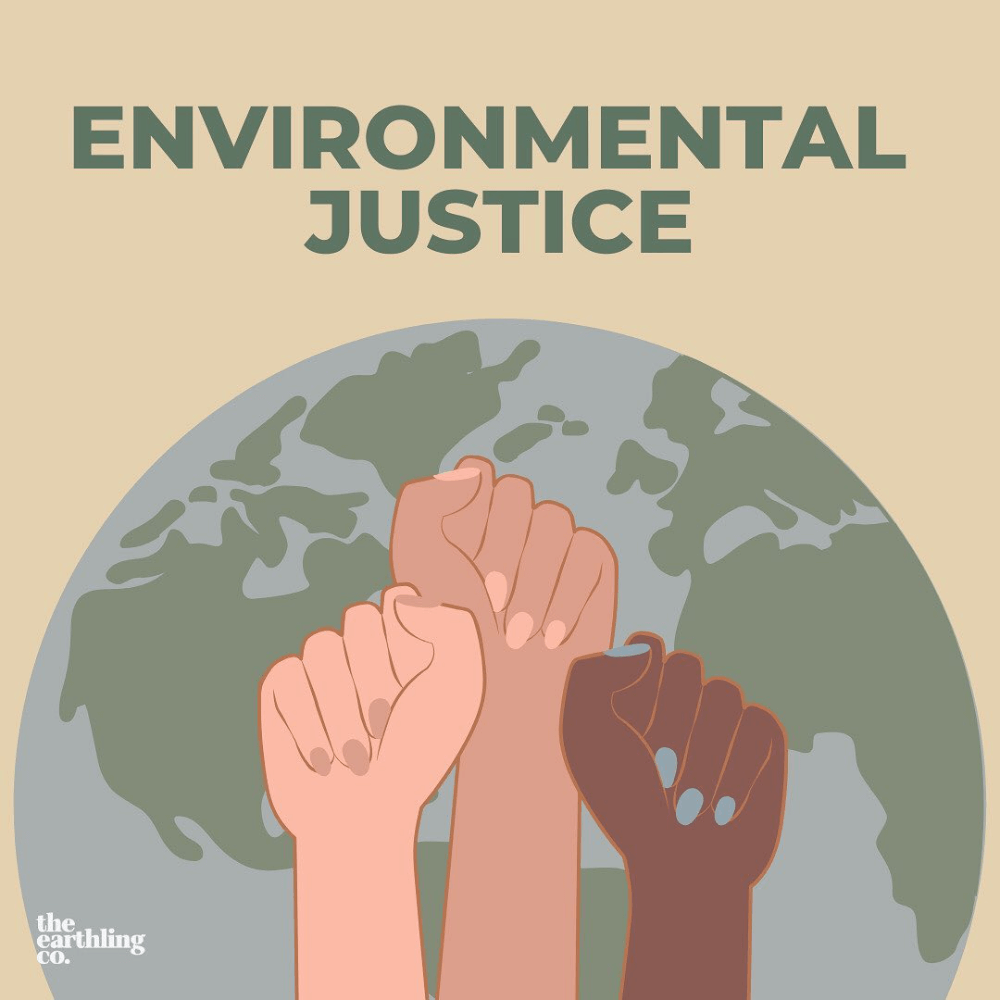In the same way that intersectional feminism exists, so does intersectional environmentalism. Intersectional environmentalism is “the type of environmentalism where both people and the planet are considered, so both social and environmental justice are considered, and [they’re] talked about in the same conversation.” This inclusive term identifies the correlation of injustices that relate to marginalized communities and the environment.
This exists on a level some of us may never understand. Minorities and low-income communities are impacted by this on many levels. From living in neighborhoods exposed to toxic waste, landfills, highways, to living in food deserts, having inaccessibility to clean air, water and even natural spaces. The study for this environmental issue is environmental justice, social justice and environmentalism.

If you’re having a hard time wrapping your head around this, maybe you’ll understand it through a context situation you’re probably familiar with: The Flint Water Crisis. We have to think about the communities who are experiencing these environmental injustices firsthand. Climate change affects lower-income and minority communities first. On another level, rising sea levels are endangering islands and inhabitants’ homes, one example being Gardi Sugdub in Panama. You can watch this five minute documentary by Miami local Michael Adams here.
The NAACP notes that “race — even more than class — is the number one indicator for the placement of toxic facilities in this country. And communities of color and low-income communities are often the hardest hit by climate change.”
Because climate change, environmental issues, and injustices affect BIPOC communities dramatically, they are also the first to impact and catalyze change. We need to bring to light the change makers. The climate crisis is a racial issue too.
In many ways, the civil rights movement brought to light the environmental and public health concerns. “Three out of five African Americans live in neighborhoods near toxic waste sites and African American children are poisoned by lead at almost five times the rate of white children,” mentions Leah Thomas. As they fought for their rights, they also fought environmental injustice.
In a research conducted by the George Mason University’s Center for Climate Change Communication found that, of those surveyed, “people of color — notably, nonwhite Hispanic/Latinx adults — are more concerned about the effects of the climate crisis than white adults.”

We have seen time and time again how the system of power is abusive, especially in concerns that don’t impact them directly. This mistreatment exists in people and the planet. Now more than ever, we need to come together to protect the environment and BIPOC communities. This unity is what binds us as one.
The change that we want exists on many levels, to create a better world we must make it better for all. That means addressing the communities who are directly facing these issues.
We must consider what communities are being impacted the most, and advocate for equal access to a safe environment. Our voice and our votes matter. Make sure you are registered to vote and, if you don’t want to vote in person due to the current situation, make sure to submit a mail home ballot.
We have been brought up to think of ourselves as separate, to create barriers between people based on gender, race, nationality, sexual orientation. We position ourselves in boxes. What intersectional feminism and intersectional environmentalism shows us is the connectivity that exists in these issues but also the connectivity we must realize between humans.

The more you know, the more you can be it and bring us together as one. Here are some reads
so you can learn more, brought to you by Brightly.eco:
Black Faces, White Spaces by Carolyn Finney
Why Every Environmentalist Should Be Anti-Racist by Leah Thomas
Black Environmentalists Talk About Climate and Anti-Racism
A Terrible Thing to Waste by Harriet A. Washington

